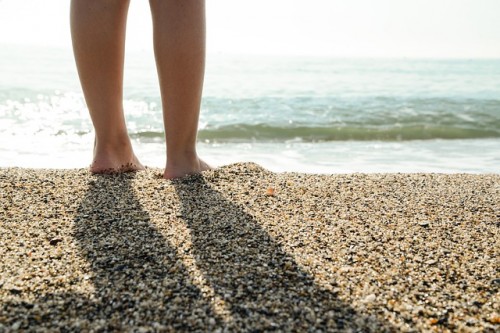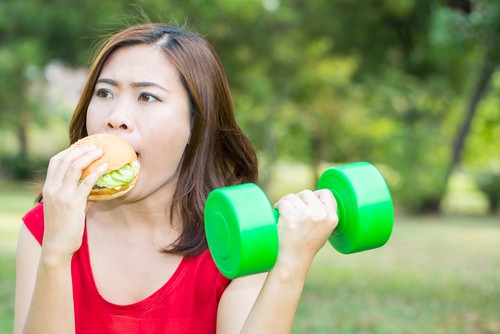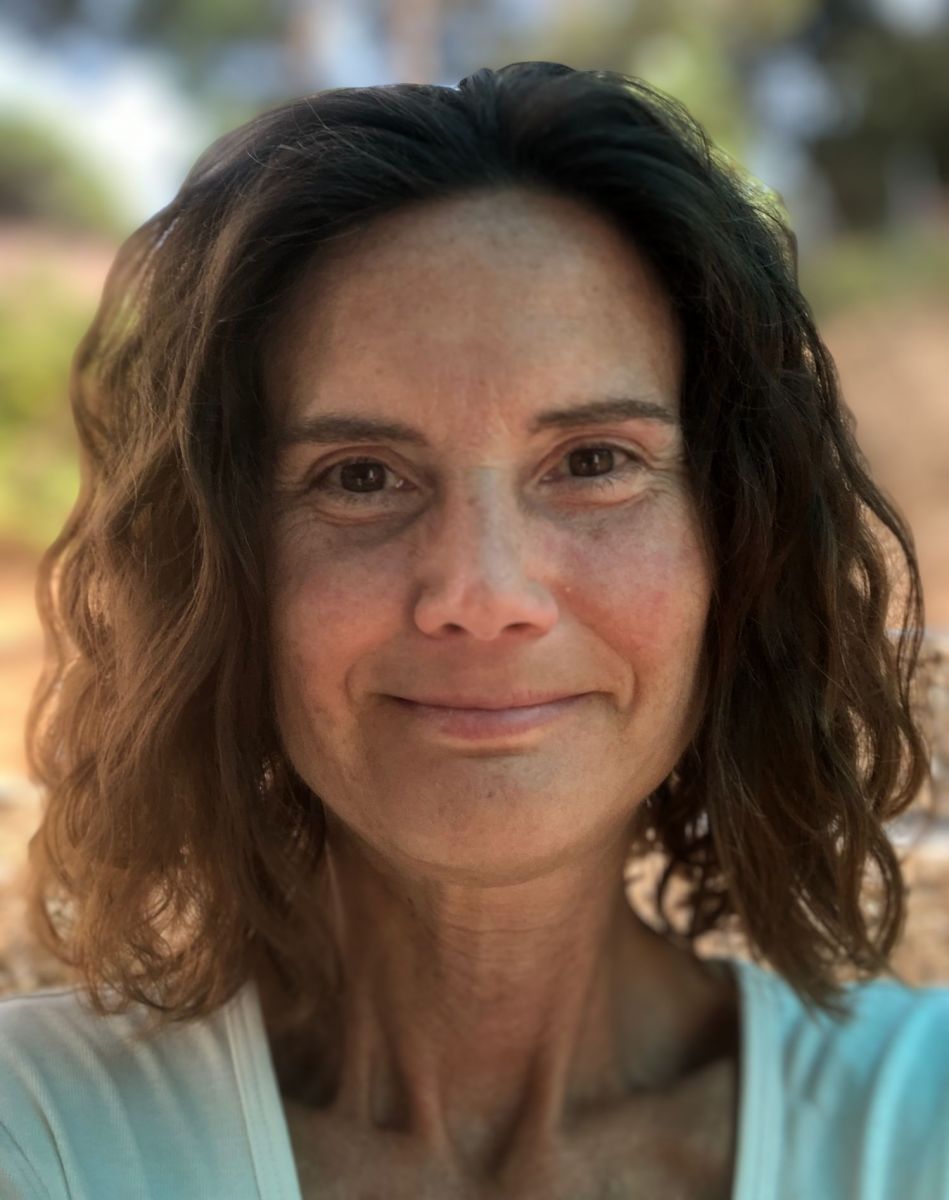We could say that there exists a type of compensation between each of the different necessities in our lives. When one fails, it can be compensated by another that is stronger. This happens in the same way as in people with any kind of disability.
Have you ever observed a disabled person? Blind people, for instance, have develop their senses of hearing and touch extraordinarily. This heightened development of these two senses compensates not being able to see. In the same way, when an essential aspect is missing in a person’s health, they must look to compensate it by other needs.
Although a person’s problem may be of a psychological nature, the simple fact of improving their diet, taking care to eat foods that facilitate the flow of neurotransmitters, will always make them feel better and stronger psychologically. And if a person’s problem is of a nutritional nature, then being strong psychologically – for instance by having a positive attitude and knowing how to accept the disease – will help them to recover from their disease.
The most important objective to help a person restore good health is to find the causes of their disease. For this reason, therapists should master all those disciplines related to health: physical health, sleep, nutrition, psychology, spirituality, etc. This is the aim of the Natural Hygiene approach to healing. But it is difficult for a health counselor to learn so much about so many different topics in sufficient depth. This is why therapists specialise in a specific topic; and the truth is that a great majority of people are satisfied to follow a certain therapy, even if this discipline is not the real cause of their disease. Doing more physical exercise always helps all people, in the same way that eating healthily, having a stable emotional, and spiritual life also has an important impact.
Personally, I always notice the fact that when I am on holidays, I enjoy a better health. I can even eat some foods that make me sick in normal conditions, as they barely affect me when I am on holiday. For instance, I would be able to eat a paella every now and then without a problem, whereas during the rest of the year I can’t eat any rice without suffering serious circulatory problems (see this article). We could say that the fact of enjoying the sunlight, having less things on our mind, less stress, a more agreeable temperature, etc. can compensate for dietary excesses. In my case, alimentary intolerances and an inadequate diet are better tolerated when the other aspects necessary to life are more than fulfilled.
 From these facts, you could see the functioning of the human body as an energy system. The energy I am referring to has nothing to do with calories; you could compare it to a battery. Our human battery can be charged with vital energy in different ways: rational sunbathing, walking into nature, practicing some physical exercise, sleeping well, eating healthy foods, laughing, listening to classical music, praying, etc.
From these facts, you could see the functioning of the human body as an energy system. The energy I am referring to has nothing to do with calories; you could compare it to a battery. Our human battery can be charged with vital energy in different ways: rational sunbathing, walking into nature, practicing some physical exercise, sleeping well, eating healthy foods, laughing, listening to classical music, praying, etc.
There exist a great number of human activities that decharge our vital energy batteries. For instance, listening to strident music, as Masaru Emoto demonstrated; electromagnetic radiation such as from mobile phones; cold temperature and humidity from the fog; travelling on an airplane; negative emotions; …
Some of the essential aspects needed for life can spend vital energy if provided negatively. Once a person breathes polluted air or water, they will need to spend energy to get rid of the toxic products in their body; if they eat unhealthy foods they will spend energy to get rid of such products from their body; if they suffer from stress or negative emotions the body will use up more energy than if the person is happy and relaxed; if one carries out physical exercise beyond one’s capacity this will also reduce their energy. Physical exercise consumes calories, yet if it is carried out correctly, it charges the energy in our batteries positively.
We need a certain level of vital energy to enjoy good health. When the level reduces beyond a certain value, we start to suffer from health problems. The lower the level of vital energy, the more serious the diseases, and when the level of vital energy is chronically deficient, diseases also become chronic. Let’s see some examples to better understand this phenomenon.
Imagine that eating a paella consumes 5 units of energy. If this person is just at the limit of the energy level for good health, by eating a paella they will fall sick. But imagine that sunbathing for a few hours provides you with 6 units of energy. Providing that all other essential elements that intervene in the human energy system are constant, if the person has sunbathed, they will have sufficient energy to eat a paella without falling ill.
Another example would be to suppose that every minute of physical exercise brings one 0.25 units of energy. Then, a person who has carried out 40 minutes of exercise (0.25*40=10) would be able to eat a paella (5 units of energy) for lunch and some French fries for dinner (if the French fries consume 5 units of energy).
Now imagine that eating a salad with the adequate ingredients, adequate quantity, and at the adequate time, gives you 20 units. Then the person can endure maybe 20 minutes of intense stress without becoming sick (if every minute of stress consumes 1 unit of energy).
On the other hand, some actions have an energy cost that is too high. Let’s suppose that the minimum level a person must maintain to be in good health is 10,000. People who have a level of energy higher than 10,000 enjoy a good health and can afford certain vicissitudes in their lives without becoming sick, and they can also afford certain negative actions, depending on the amount of energy they have in excess.
 We can consider, for example, that eating a hamburger with French fries and coca-cola has an energy cost of 100 units. If a person’s energy level is no higher than 10100, they will begin to suffer certain health issues when they eat this food.
We can consider, for example, that eating a hamburger with French fries and coca-cola has an energy cost of 100 units. If a person’s energy level is no higher than 10100, they will begin to suffer certain health issues when they eat this food.
As logic predicts, it is necessary to have the necessary level of vital energy to be able to spend it in certain activities that consume it. Then, it is not a question of eating unhealthy food in excess, believing that these excesses can be consumed or “burned” by exercising. It doesn’t work this way – instead one must elevate their energy level sufficiently by exercising before, to afford a treat.
In summer, when we enjoy the sun, resting, exercising, and we are not summited to too much stress, our vital energy level is higher, and we can spend this extra energy by eating some treats such as ice glaces and paellas. We don't use to fall sick too much often in summer.
But in winter, there is not sun; we work until late in the evening, often summited to high stress; we don't sleep enough and the cold weather consumes our vital energy. Then, excess food on Christmas and other celebrations decrease even more our energy, so we finish with such a low level of energy that we often fall sick.
A person with alimentary intolerances would be able to overcome them, in a way, by improving other aspects in their lifestyle, in such a way that their energy is elevated to a sufficient amount to be able to “spend” it on those prejudicial foods.
I would like to add that Reiki and a number of other energetic therapies increase the vital energy level of our batteries in a very significant manner. See more about my offer on energy therapy sessions here.
However, what I explained is not as simple as it seems, our body does not function in such a mathematic manner. This phenomenon consists of a non-lineal system, with an infinite number of variables, and therefore it is not as deterministic. It is also much more complex and there probably exist many different types of vital energy: physical energy, emotional energy, spiritual energy… and also within physical energy we might be able to distinguish between the energy of each organ and body part.
All of the different vital energies that a person possesses are related and there exists a compensation between them: good physical energy can compensate for low emotional energy; a good health and sleeping well can help one to be emotionally stronger. Although evidently, physical activities have a more important impact over our physical energy; emotions and beliefs over our emotional energy; and spiritual lives over our spiritual energy.
But despite the complexity of the human vital energy system, we can try to understand a bit about how our own vital energy system works, and identify what are our limits, even if sometimes we are mistaken. For this reason I suggest you keep a diary where you write down every day what you have eaten, and the other important variables: how much physical exercise you carried out, stress, types of activities, sleep, etc. With time, you can arrive to conclusions based on studying this diary. For instance, a person may conclude that every time that they eat rice they feel more tired, more bloated, and their memory fails them; but if they exercise for an hour or fasts for 24 hours, eating rice doesn’t have this negative effect.
I encourage you to write your diary and learn to know your personal vital energy system better and its possible compensations!
Have you ever observed a disabled person? Blind people, for instance, have develop their senses of hearing and touch extraordinarily. This heightened development of these two senses compensates not being able to see. In the same way, when an essential aspect is missing in a person’s health, they must look to compensate it by other needs.
Although a person’s problem may be of a psychological nature, the simple fact of improving their diet, taking care to eat foods that facilitate the flow of neurotransmitters, will always make them feel better and stronger psychologically. And if a person’s problem is of a nutritional nature, then being strong psychologically – for instance by having a positive attitude and knowing how to accept the disease – will help them to recover from their disease.
The most important objective to help a person restore good health is to find the causes of their disease. For this reason, therapists should master all those disciplines related to health: physical health, sleep, nutrition, psychology, spirituality, etc. This is the aim of the Natural Hygiene approach to healing. But it is difficult for a health counselor to learn so much about so many different topics in sufficient depth. This is why therapists specialise in a specific topic; and the truth is that a great majority of people are satisfied to follow a certain therapy, even if this discipline is not the real cause of their disease. Doing more physical exercise always helps all people, in the same way that eating healthily, having a stable emotional, and spiritual life also has an important impact.
Personally, I always notice the fact that when I am on holidays, I enjoy a better health. I can even eat some foods that make me sick in normal conditions, as they barely affect me when I am on holiday. For instance, I would be able to eat a paella every now and then without a problem, whereas during the rest of the year I can’t eat any rice without suffering serious circulatory problems (see this article). We could say that the fact of enjoying the sunlight, having less things on our mind, less stress, a more agreeable temperature, etc. can compensate for dietary excesses. In my case, alimentary intolerances and an inadequate diet are better tolerated when the other aspects necessary to life are more than fulfilled.
 From these facts, you could see the functioning of the human body as an energy system. The energy I am referring to has nothing to do with calories; you could compare it to a battery. Our human battery can be charged with vital energy in different ways: rational sunbathing, walking into nature, practicing some physical exercise, sleeping well, eating healthy foods, laughing, listening to classical music, praying, etc.
From these facts, you could see the functioning of the human body as an energy system. The energy I am referring to has nothing to do with calories; you could compare it to a battery. Our human battery can be charged with vital energy in different ways: rational sunbathing, walking into nature, practicing some physical exercise, sleeping well, eating healthy foods, laughing, listening to classical music, praying, etc.There exist a great number of human activities that decharge our vital energy batteries. For instance, listening to strident music, as Masaru Emoto demonstrated; electromagnetic radiation such as from mobile phones; cold temperature and humidity from the fog; travelling on an airplane; negative emotions; …
Some of the essential aspects needed for life can spend vital energy if provided negatively. Once a person breathes polluted air or water, they will need to spend energy to get rid of the toxic products in their body; if they eat unhealthy foods they will spend energy to get rid of such products from their body; if they suffer from stress or negative emotions the body will use up more energy than if the person is happy and relaxed; if one carries out physical exercise beyond one’s capacity this will also reduce their energy. Physical exercise consumes calories, yet if it is carried out correctly, it charges the energy in our batteries positively.
We need a certain level of vital energy to enjoy good health. When the level reduces beyond a certain value, we start to suffer from health problems. The lower the level of vital energy, the more serious the diseases, and when the level of vital energy is chronically deficient, diseases also become chronic. Let’s see some examples to better understand this phenomenon.
Imagine that eating a paella consumes 5 units of energy. If this person is just at the limit of the energy level for good health, by eating a paella they will fall sick. But imagine that sunbathing for a few hours provides you with 6 units of energy. Providing that all other essential elements that intervene in the human energy system are constant, if the person has sunbathed, they will have sufficient energy to eat a paella without falling ill.
Another example would be to suppose that every minute of physical exercise brings one 0.25 units of energy. Then, a person who has carried out 40 minutes of exercise (0.25*40=10) would be able to eat a paella (5 units of energy) for lunch and some French fries for dinner (if the French fries consume 5 units of energy).
Now imagine that eating a salad with the adequate ingredients, adequate quantity, and at the adequate time, gives you 20 units. Then the person can endure maybe 20 minutes of intense stress without becoming sick (if every minute of stress consumes 1 unit of energy).
On the other hand, some actions have an energy cost that is too high. Let’s suppose that the minimum level a person must maintain to be in good health is 10,000. People who have a level of energy higher than 10,000 enjoy a good health and can afford certain vicissitudes in their lives without becoming sick, and they can also afford certain negative actions, depending on the amount of energy they have in excess.
 We can consider, for example, that eating a hamburger with French fries and coca-cola has an energy cost of 100 units. If a person’s energy level is no higher than 10100, they will begin to suffer certain health issues when they eat this food.
We can consider, for example, that eating a hamburger with French fries and coca-cola has an energy cost of 100 units. If a person’s energy level is no higher than 10100, they will begin to suffer certain health issues when they eat this food.As logic predicts, it is necessary to have the necessary level of vital energy to be able to spend it in certain activities that consume it. Then, it is not a question of eating unhealthy food in excess, believing that these excesses can be consumed or “burned” by exercising. It doesn’t work this way – instead one must elevate their energy level sufficiently by exercising before, to afford a treat.
In summer, when we enjoy the sun, resting, exercising, and we are not summited to too much stress, our vital energy level is higher, and we can spend this extra energy by eating some treats such as ice glaces and paellas. We don't use to fall sick too much often in summer.
But in winter, there is not sun; we work until late in the evening, often summited to high stress; we don't sleep enough and the cold weather consumes our vital energy. Then, excess food on Christmas and other celebrations decrease even more our energy, so we finish with such a low level of energy that we often fall sick.
A person with alimentary intolerances would be able to overcome them, in a way, by improving other aspects in their lifestyle, in such a way that their energy is elevated to a sufficient amount to be able to “spend” it on those prejudicial foods.
I would like to add that Reiki and a number of other energetic therapies increase the vital energy level of our batteries in a very significant manner. See more about my offer on energy therapy sessions here.
However, what I explained is not as simple as it seems, our body does not function in such a mathematic manner. This phenomenon consists of a non-lineal system, with an infinite number of variables, and therefore it is not as deterministic. It is also much more complex and there probably exist many different types of vital energy: physical energy, emotional energy, spiritual energy… and also within physical energy we might be able to distinguish between the energy of each organ and body part.
All of the different vital energies that a person possesses are related and there exists a compensation between them: good physical energy can compensate for low emotional energy; a good health and sleeping well can help one to be emotionally stronger. Although evidently, physical activities have a more important impact over our physical energy; emotions and beliefs over our emotional energy; and spiritual lives over our spiritual energy.
But despite the complexity of the human vital energy system, we can try to understand a bit about how our own vital energy system works, and identify what are our limits, even if sometimes we are mistaken. For this reason I suggest you keep a diary where you write down every day what you have eaten, and the other important variables: how much physical exercise you carried out, stress, types of activities, sleep, etc. With time, you can arrive to conclusions based on studying this diary. For instance, a person may conclude that every time that they eat rice they feel more tired, more bloated, and their memory fails them; but if they exercise for an hour or fasts for 24 hours, eating rice doesn’t have this negative effect.
I encourage you to write your diary and learn to know your personal vital energy system better and its possible compensations!
 Millions of people travel every year on holidays to the south of Europe, looking for sunlight and Mediterranean beaches. Others prefer to spend their vacation doing sports in a little mountain village. We are attracted to beaches by the sunlight, warm temperatures softened by the sea breeze and the idyllic landscapes; and to the mountains by the various sport possibilities, the clean water and air, nature, cool nights as well as the dreamlike landscapes. In both cases, people look to find activities that will bring them wellness and health.
Millions of people travel every year on holidays to the south of Europe, looking for sunlight and Mediterranean beaches. Others prefer to spend their vacation doing sports in a little mountain village. We are attracted to beaches by the sunlight, warm temperatures softened by the sea breeze and the idyllic landscapes; and to the mountains by the various sport possibilities, the clean water and air, nature, cool nights as well as the dreamlike landscapes. In both cases, people look to find activities that will bring them wellness and health.







 Gemma Calzada is a Holistic Nutritionist Ph.D. and a certified GAPS practitioner, accredited by ASCA. Her mission is to improve health through nutrition and to help people suffering from a dietary intolerance to live happily.
Gemma Calzada is a Holistic Nutritionist Ph.D. and a certified GAPS practitioner, accredited by ASCA. Her mission is to improve health through nutrition and to help people suffering from a dietary intolerance to live happily. 
